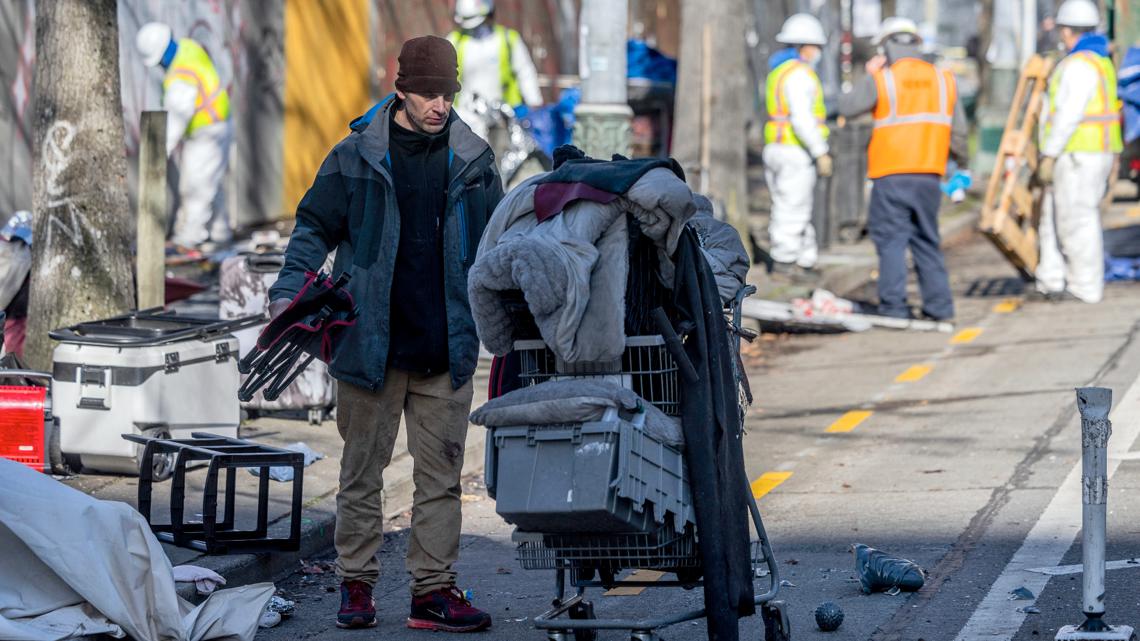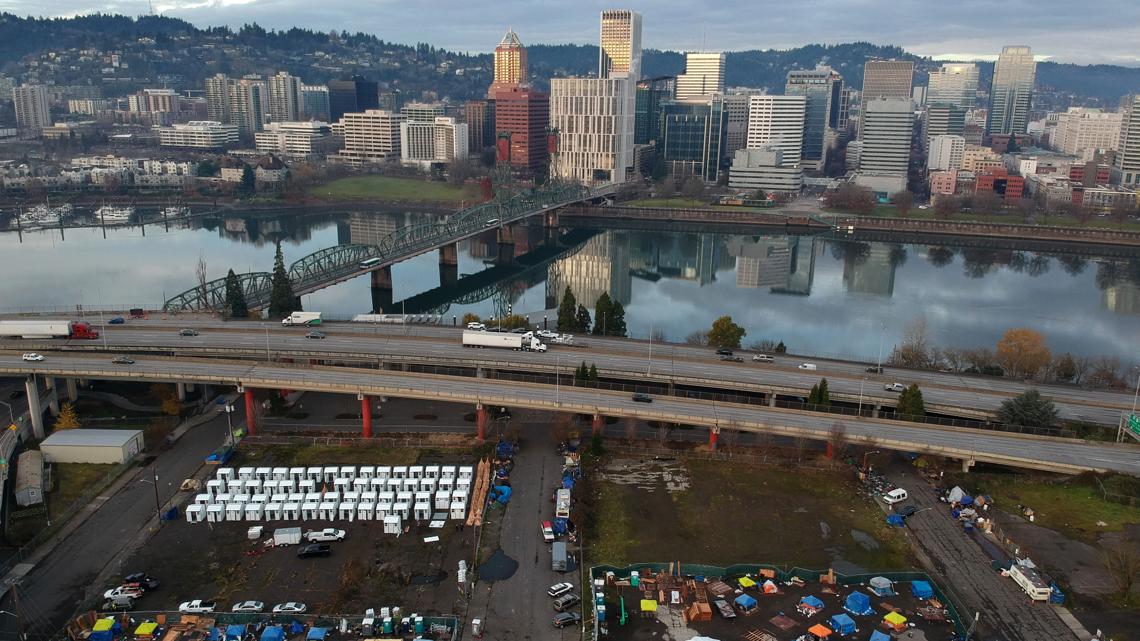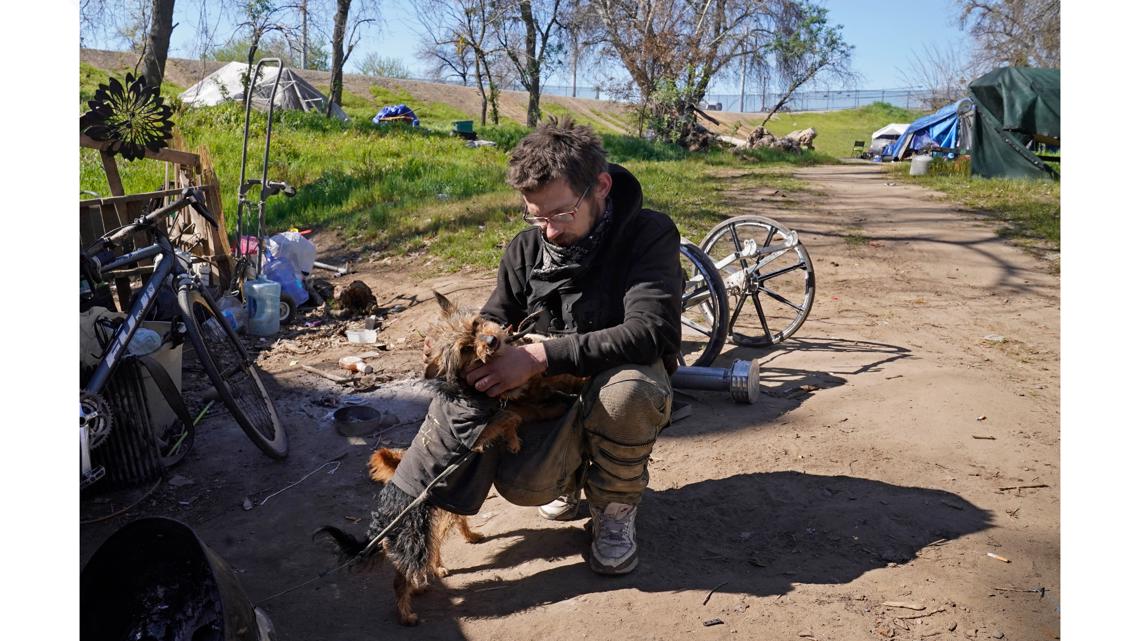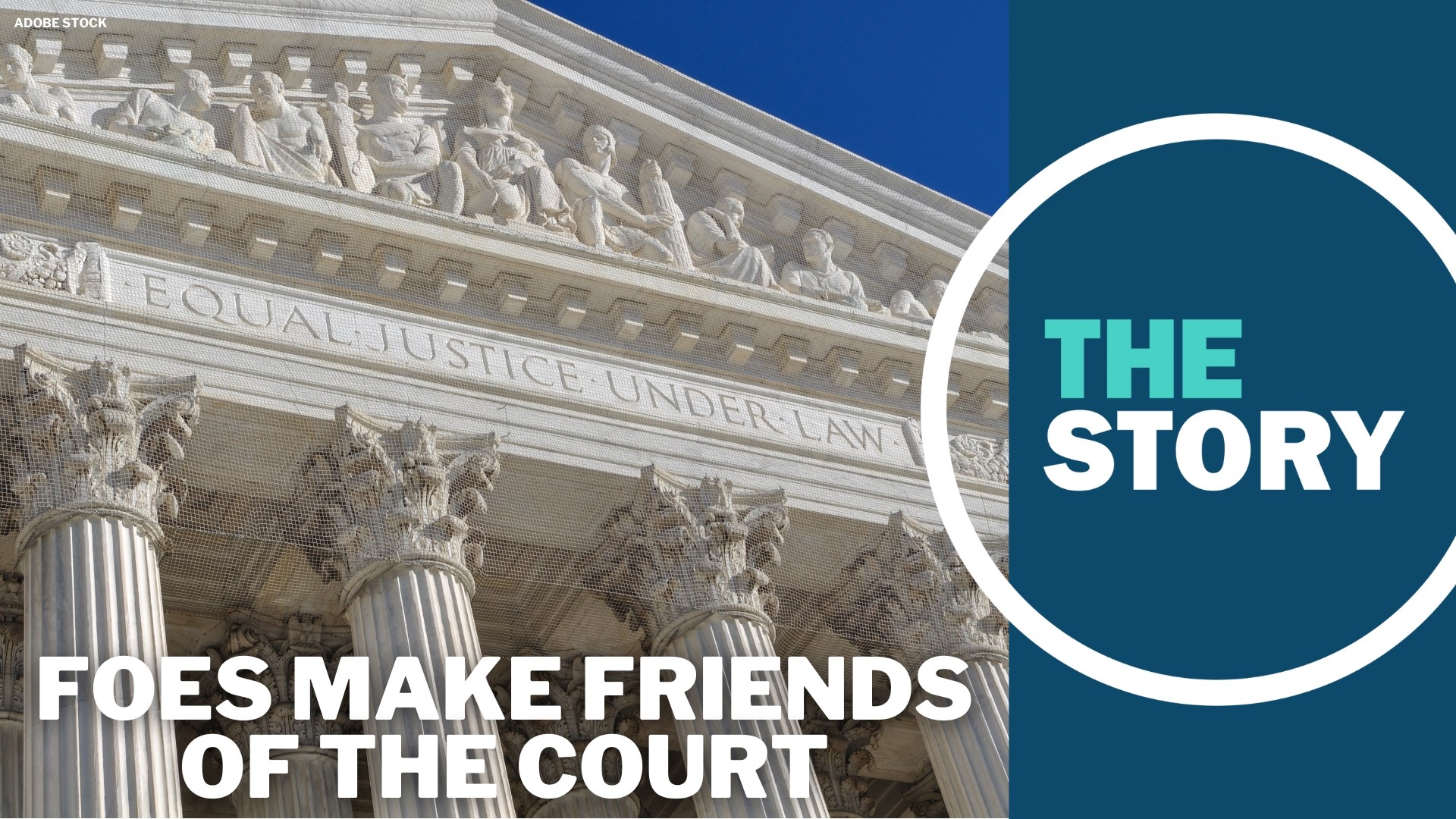PORTLAND, Ore. — A lawsuit from the southern Oregon city of Grants Pass could be heading to the highest court in the nation — and if it does, the outcome might reshape policies on homelessness across the U.S. for years to come. Already, the push to have the U.S. Supreme Court examine the case has resulted in some unusual alliances.
The trajectory of the case in question, Johnson v. Grants Pass, is far from certain. The U.S. Supreme Court has not said yet whether it will take the case up but some legal experts think it's a no-brainer.
The titular Johnson is a woman who lived out of her car, staying in parks around Grants Pass. She's part of the original class of three people on whose behalf the lawsuit was filed, but earlier rulings in the case broadened the class to include the city's entire homeless population.
Johnson v. Grants Pass concerns five laws that the city enacted to keep homeless people from camping within city limits. Following precedent set by an earlier case, Martin v. Boise, a three-judge panel from the federal Ninth Circuit Court of Appeals ruled that it was unconstitutional for Grants Pass to enforce those laws, at least in the manner they had before.
In Martin v. Boise, the Ninth Circuit ruled that cities cannot penalize homeless people for camping on public property unless the city has sufficient shelter space available for people living unsheltered. Otherwise, the court ruled, those penalties violate the Eighth Amendment, which forbids cruel and unusual punishment.
Portland's recently adopted daytime camping ban helpfully demonstrates the limits to the restrictions that these cases have added. Cities can still ban camping at certain times of day, around-the-clock at some locations, and by dictating the manner of camping — as long as there aren't fire or environmental hazards present, for instance. But the Ninth Circuit made clear that cities cannot attempt to skirt these rulings by adding rules that are too onerous, as with the Grants Pass revised ordinance that allowed for people to sleep on public property but without sleeping bags, bedding or tents.
If the Supreme Court takes up Johnson v. Grants Pass and does anything other than uphold it, their ruling would likewise overturn the Boise ruling — a huge development for West Coast cities that have been grappling with unsheltered homelessness. It could open up the floodgates for blanket camping bans, enforced by criminal or civil penalties.
Right now, the Grants Pass and Boise rulings effectively dictate homelessness policy for much of the Western U.S., covering nine states and about 67 million people.


Drawing battle lines
After the Ninth Circuit declined to take another look at the Grants Pass case with the full court, the city appealed to the U.S. Supreme Court for review. That's where things remain right now, awaiting whether the high court will take up the case or pass it over.
But in high-stakes cases like this, other groups other than the plaintiffs and defendants can weight in, and a few groups have already done just that with the Grants Pass case. One of them is the Goldwater Institute, a conservative think tank based in Arizona.
"These decisions are so poorly reasoned that at best they've been creating a tremendous amount of confusion for city officials trying to deal with the homelessness problems in their localities, and at worst have given an excuse to city officials who don't want to do their jobs," said Goldwater Institute attorney Timothy Sandefur. "To not do it because what the Ninth Circuit said that it's unconstitutional to arrest somebody for sleeping on the sidewalk if there aren't sufficient shelter beds to accommodate those people. And notably, the 9th Circuit excludes from the counts shelter beds at church-run facilities ... churches are the number one source of homeless aid, so to to rule them out entirely then is to kind of load the dice in that calculation."
Sandefur is correct in that many cities have only religious shelters, or rely on them for a substantial portion of their shelter capacity. That was the case in Grants Pass when the lawsuit was first filed. And religious shelters often have requirements that other shelters do not — sobriety, for instance, or even a ban on nicotine products, but also faith-based requirements.
On the other side of the case is Eric Tars, an attorney for the National Homeless Law Center. His group wants Martin v. Boise to stay in place, which means he either wants the Supreme Court to pass the case over or to take it up and rule against Grants Pass.
"Quite frankly, the proposition that the Martin v. Boise and Grants Pass cases stand for is really quite a low bar under the Eighth Amendment," Tars said. "All it says is that communities can't punish people experiencing homelessness for undertaking basic survival activities — sleeping, sheltering themselves from the elements — if they don't offer them an adequate alternative place to do those things. So the only reason that you would want to overturn that is if you want to be able to punish people for those activities without even bothering to have to offer an alternative.
"And these amicus briefs that are being submitted, they complain that Martin v. Boise binds the hands of communities, prevents them from being able to solve homelessness. If that was true, then in the decades before Martin v. Boise became law in the Ninth Circuit we would have solved homelessness. But criminalization didn't solve homelessness back then, and it's not going to solve it now."


Strange bedfellows
Groups with a dog in this fight, so to speak, can submit something to the Supreme Court called an "amicus curiae," or "friend of the court." Amicus briefs can attempt to influence the court's decision by adding depth or weight to one side's argument, and the Grants Pass petition is absolutely rife with amicus briefs — 24 as of Friday.
The briefs come from all over; from Oregon, Washington, California, Arizona and a number of other states. And the groups that filed these briefs cover a fairly large spectrum of both liberal and conservative politics, including Republicans in the Arizona legislature and the progressive governor of California, Gavin Newsom.
The Story's Pat Dooris reached out to Gov. Newsom's office in hopes of securing an interview on this subject, but his people said that he was too busy. However, they did respond with a statement that makes clear which side he's on in this case — the same side as the conservatives:
"While I agree with the basic principle that a city shouldn't criminalize homeless individuals for sleeping outside when they have nowhere else to go within that city's boundaries, courts continue to reach well beyond that narrow limit to block any number of reasonable efforts to protect homeless individuals and the broader public from the harms of uncontrolled encampments," Newsom's statement said, in part. "It's time for the courts to stop these confusing, impractical and costly rulings that only serve to worsen this humanitarian crisis."
Newsom's statement also pointed out that his state is spending billions to address housing and homelessness, but claimed that the courts have tied California's hands when it comes to dealing with the problem.


Sandefur, the attorney for the conservative Goldwater Institute is not surprised to see influential figures from both sides of the political spectrum supporting Grants Pass.
"Yes, and understandably so, because the Ninth Circuit's ruling is so irrational that it doesn't make sense to anybody but the most rigidly ideological fringe of the left," Sadefure said. "We're glad to see that cool heads are prevailing on both left and right and asking the court to take up this case. And I don't see how they could possibly not take up this case. It's such a big deal. It has caused so much chaos throughout the West ... and only the Supreme Court can fix this problem, because the Ninth Circuit's ruling stays in place unless the Supreme Court acts."
It isn't just California's governor and some Arizona conservatives, either. The call is coming from inside the house. The League of Oregon Cities, the city of Portland and other local entities have put in their own two cents.
According to Portland's brief, city-affiliated outreach workers made 3,399 offers of shelter beds to homeless people between May of 2022 and July of 2023, and 2,560 said "no." If that number is correct, 75% of offers for shelter have been turned down. But Eric Tars with the National Homeless Law Center thinks that data could be deceiving.
"Well, the city should be looking at what it's actually offering. There's a lot of evidence coming out of the pandemic that when people were offered dignified, safe, private spaces — the hotel rooms that they could stay in for a longer period of time and and offer them a safe place to be — that they took those up at 90%-plus rates," Tars said.
Tar pointed out that congregate shelters have curfews that can be difficult to follow for homeless people who work or have other commitments.
"It's not that people are shelter-resistant, it's that the shelters are people-resistant," he continued. "And so rather, if the only way that you can get somebody to accept an offer of shelter is by forcing them into it, under the threat of arrest, then it says a lot more about what's being offered than it does about the person rejecting it. There's so many legitimate reasons why a person might want not want to be able to go into shelter."
And those insights aren't new — Portland officials have said similar things. When asked, many homeless Portlanders prefer being on the street to staying in a congregate shelter where they have no guarantee of a spot on successive nights, where they lack privacy and independence, and where they feel they can't be guaranteed personal safety or the security of their possessions. That information helped shaped Mayor Ted Wheeler's proposal to open large outdoor sanctioned camps where people can be in their own tents or shelter.
The Supreme Court is expected to decide whether to take up Johnson v. Grants Pass in January.
The Story airs at 6:30 p.m. every weekday on KGW. Got a question or comment for the team? Shoot an email to thestory@kgw.com or call and leave a voicemail at 503-226-5090.

